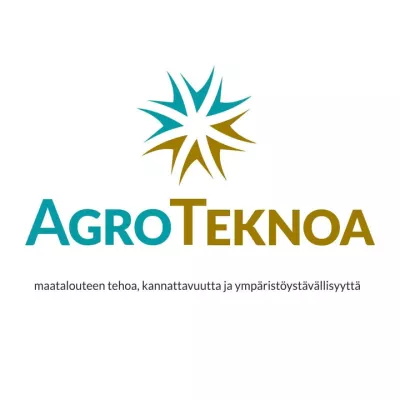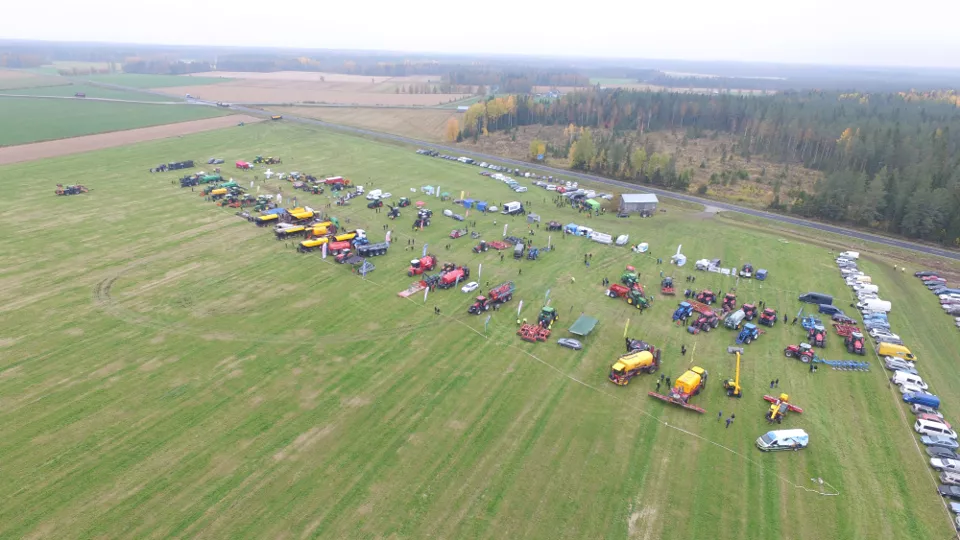General information
RDP Priority
- P5. Resource efficiency and climate
RDP Focus Area
- 5B: Energy use efficiency
RDP Measure
- M16: Cooperation
Beneficiary type
- Public authority / body
Summary
Agricultural technology organisations cooperated with young farmers in this project to share user experiences of the latest production technologies. The aim was to improve the efficiency, profitability, and environmental friendliness of agricultural production, for example by reducing energy consumption and improving resource efficiency.
A range of state-of-the-art machinery and equipment for livestock and arable farms were tested by practical work in the harsh climate conditions of Northern Ostrobothnia in Finland, including on peatland soils. Findings were shared with other farmers in the area through videos and various work and device demonstrations.
More than 30 different technologies were involved and approximately 6 700 farmers participated. They were particularly interested in testing equipment and machinery that had just entered the market.
Results
Thanks to the project:
- Farmers are now more experienced in adopting new technologies, including for paludiculture on peatlands;
- There is a better understanding of the technology that is suitable for their own farms;
- It is possible to purchase new technology more cost-effectively and error purchase risks are reduced;
- Expertise in the network of agricultural stakeholders in the region has developed in relation to new agricultural technologies and the network's cooperation has become more intensive; and
- Consumers and future farmers also learned more about modern agriculture through media coverage and presentations in educational institutions.

Promoter
City of Nivala
Funding
Total budget: 660 000 (EUR)
EAFRD: 221 760 (EUR)
National/Regional: 306 240 (EUR)
Private/own: 132 000 (EUR)
Keywords
Context
This project was implemented in Finland’s Northern Ostrobothnia region, which is an important food production area including livestock farms and arable land. Almost half of Finland’s peat fields are in the project area. Soil health here is key to productivity, as well as climate action to reduce greenhouse gas emissions from peatlands. Farm equipment and related skills often need to be adapted to harsh conditions and/or peat soils.
Young farmers in the region were investing in the sector, and wanted to develop modern agriculture that used the latest technologies. They needed user-centred information on the suitability of new agricultural technology for the region, such as in peatlands and during long, cold winters.
Objectives
The project aims sought to help farmers:
- Find the most suitable machinery and equipment for their farm, avoiding costly investment mistakes;
- Make better use of the existing equipment and technology;
- Use learning by experimenting and peer exchanges to increase competencies in the conditions of Northern Finland; and
- Develop a regional expertise network of farmers, agricultural educational institutions, agricultural advisory organisations, and research in smart agriculture.
Activities
The project implementation was divided into five work packages.
- Field and growth measurements involving testing and demonstrating devices for measuring nutrients and crop quality, as well as field scans and underground sensor measurement devices that could be used to determine factors related to the soil fertility of the field. Reports were written on the experiences of using the devices, also available on the project website.
- Sludge logistics test. The project presented various manure transfer solutions and made case-specific comparisons and cost calculations.
- Drone technology. Possibilities of using automated drones in field farming.
- Barn technology. Developing a situational overview system for livestock barns which provides information about the location, feeds, and activity of animals. Investigating the use of machine vision to identify the level of activity of the cattle and the use of condition cameras to monitor the welfare of cattle.
- Automated control. Teaching entrepreneurs about automation and machine automation possibilities in fieldwork, with practical testing of the accuracy and usability of various steering devices.
These technologies were tested by young farmers as well as agricultural contractors, agricultural educational institutions in the region, higher education institutions, and agricultural advisory organisations. The project actively communicated the experiences gained during the testing to other farmers in the area and compiled user experience reports on the project website.
Main results
The project tested and developed over 30 different new agricultural technologies, including the use of machine vision, different scanners and indicators, situational overview of applications, and automated controls.
A total of 147 companies (farmers, equipment suppliers and agricultural expert organisations) participated in testing during the project.
Over four years, 10 live events were organised attracting approximately 6 700 farmers.
The project's YouTube page contains more than 50 videos that showcase the tests carried out. The project's activities were also featured in the media and national agricultural expert journals.
Thanks to the project:
- Farmers are now more experienced in adopting new technologies.
- There is a better understanding of the technology that is suitable for their own farms.
- It is possible to purchase new technology more cost-effectively because risks of making inappropriate purchases are reduced.
- The expertise of the network of agricultural stakeholders in the region has developed in relation to new agricultural technologies, and the network's cooperation has become more intensive.
- Future farmers and consumers also learned more about modern agriculture through media coverage and presentations in educational institutions.
Key lessons
- Farmers in the area were able to test the latest technologies themselves and share their experiences.
- Some of the tested devices could be proven unsuitable for the area, thanks to impartial testing.
- The networks of technology expertise between farmers and the organisations implementing the project intensified.
Contact Information
Email: Hannu.tolli@nivala.fi
